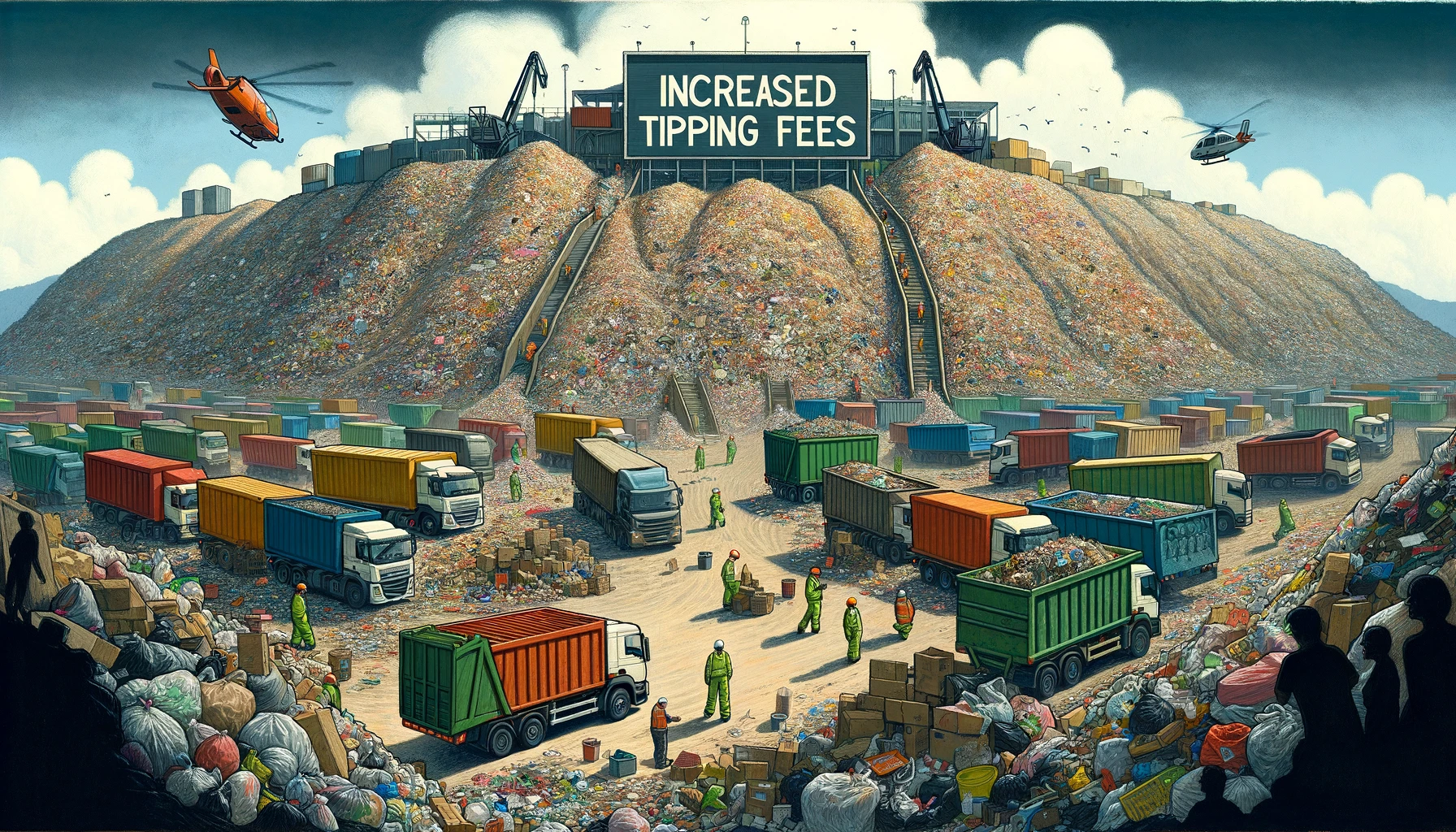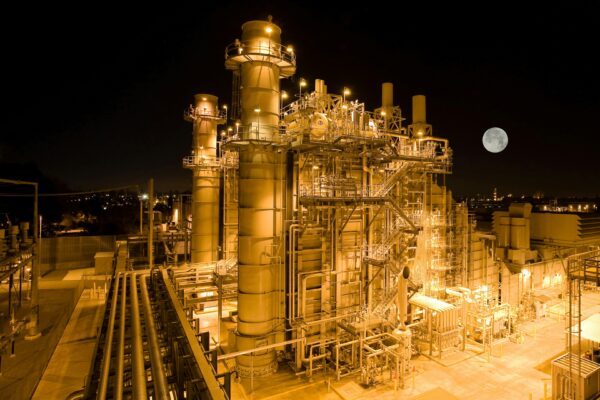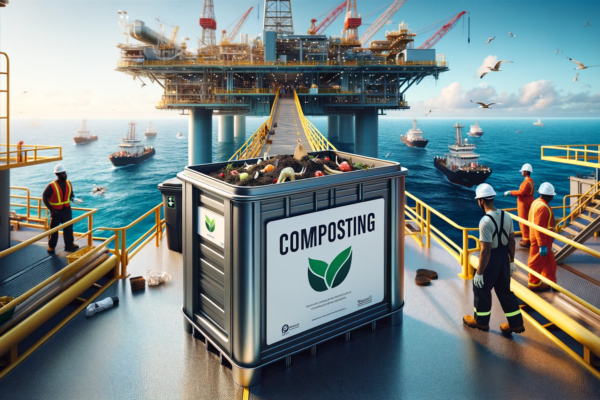Community Composting: The Unexpected Benefits of Decentralizing Traditional Waste Management.
Community Composting: The Unexpected Benefits of Decentralizing Traditional Waste Management.
In the quest for sustainable waste management practices, an innovative concept is making waves, promising not just environmental stewardship but also economic prosperity. Community composting, facilitated by advanced compost machines and other composting techniques, is revolutionizing the way businesses, schools, campuses, and communities handle organic waste. This strategy doesn’t just mitigate environmental impact; it also unveils significant economic advantages, laying the groundwork for a resilient future. Let’s explore how this approach is turning the tide, transforming organic waste into a cornerstone of financial and environmental resilience.
Economic Empowerment through Community Composting and Decentralized Waste Management
Community composting offers a pathway to economic empowerment by mitigating the surging costs tied to conventional waste management practices, a challenge increasingly faced by cities worldwide. In New York, the push for a 9% increase in commercial waste rate caps and Spokane’s impending 10% hike in garbage collection fees by 2024 exemplify the financial strain on municipalities. This trend mirrors the global escalation in solid waste management costs, with the projected cost of solid waste management expected to leap from $205 billion to an astonishing $375 billion.
Adding to this narrative, a report from the Environmental Research & Education Foundation (EREF) highlights a nationwide issue, revealing that ton-weighted average tipping fees for U.S. municipal solid waste landfills surged by 11% from 2021 to 2022, reaching $60.34 per ton. This increase, the sharpest since at least 2018, was driven by rising vehicle manufacturing and maintenance costs, fuel surcharges, as well as overall inflation. The Northeast experienced the highest fees, with average tipping fees reaching $85.41, but significant increases were also observed in the Midwest and South-Central regions. This data underscores the broader economic pressures faced by waste management across the country, further emphasizing the financial benefits of community composting.
By shifting towards community composting, cities, and businesses can significantly reduce the financial strain of waste management. This approach eliminates the need for frequent pickups and the long haul to centralized facilities, which are major contributors to the ballooning costs. Instead, processing organic waste on-site offers a dual benefit: slashing operational expenses and freeing up resources to fuel growth and innovation. This sustainable strategy not only addresses the immediate financial challenges of waste management but also aligns with broader environmental and economic goals.
Generating Revenue from Compost Production
Community composting not only promotes savings but also introduces potential revenue channels. The compost generated is highly sought after by a diverse group of consumers, including farmers, gardeners, and landscapers, due to its rich nutrient content. For example, based on the current market and the quality of the compost, it can be sold for about $20 to $50 per cubic yard. Engaging in the sale of compost not only provides a source of income but also strengthens community ties, contributing to a sustainable circular economy where waste is transformed into a valuable resource. A medium-sized community composting initiative could yield between 500 to 1,000 cubic yards of compost each year, translating to potential revenues ranging from $10,000 to $50,000. This financial gain can help cover the operational costs of the composting program and potentially support further community-based sustainability efforts.
Building Economic Resilience
By adopting decentralized composting, businesses and institutions can insulate themselves against the volatility of waste management costs. As landfill fees rise and regulations around waste disposal tighten, the ability to process waste in-house becomes an asset, ensuring long-term economic stability and resilience.
Environmental Advantages: A Path to Sustainability
Dramatic Reduction in Organic Waste and GHG
Decentralized composting significantly decreases the volume of waste sent to landfills. Transforming organic materials into compost, not only conserves landfill space but also reduces the environmental degradation associated with traditional disposal methods.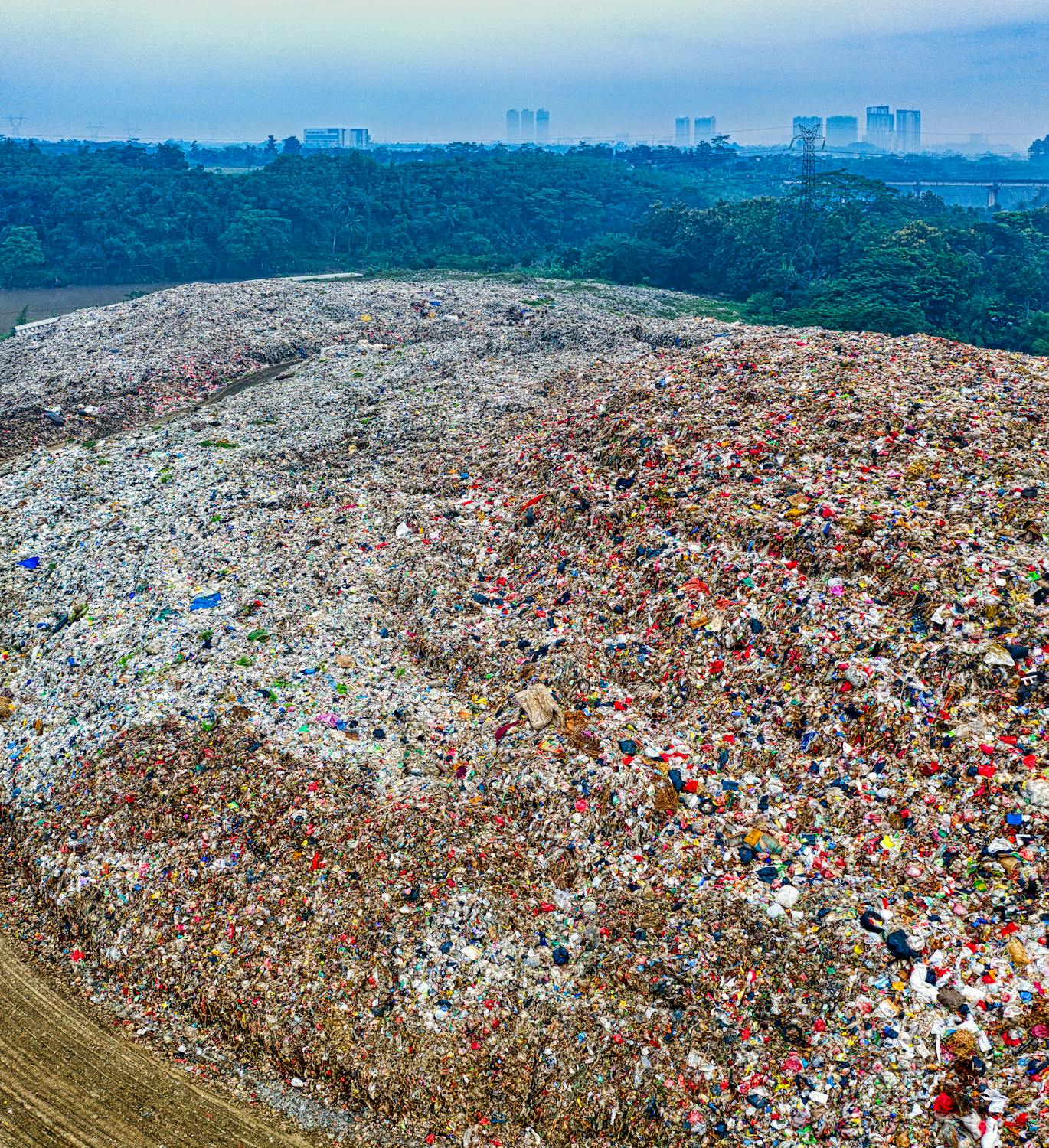
GHG Emissions Mitigation: When organic waste decomposes anaerobically in landfills, it produces methane, a potent greenhouse gas with a global warming potential more than 25 times greater than that of carbon dioxide over a 100-year period. Community composting, by facilitating aerobic decomposition, significantly reduces methane emissions. The EPA estimates that for every ton of organic waste composted rather than landfilled, methane emissions can be reduced by approximately 0.66 metric tons of CO2 equivalent. This reduction is crucial in the fight against climate change, as diverting just 50% of global organic waste from landfills to composting could mitigate millions of tons of CO2 equivalent emissions annually.
Volume Reduction: Composting can decrease the volume of organic waste by up to 50-75%. This is achieved through the biological breakdown of organic materials into more compact, nutrient-rich compost. For instance, a study by the US Environmental Protection Agency (EPA) highlighted that yard trimmings and food waste, which constitute a significant portion of municipal solid waste, can be effectively reduced through composting, diverting substantial waste volumes from landfills.
Landfill Space Savings: The diversion of organic waste from landfills to composting facilities conserves valuable landfill space. It’s estimated that composting could extend the lifespan of existing landfills by several years, depending on the community’s size and waste generation rates. For example, San Francisco’s composting program has diverted more than 1.5 million tons of food scraps and yard waste from landfills, demonstrating the potential landfill space savings achievable through effective composting initiatives.
Reduced Environmental Degradation: Beyond GHG emissions, landfilling organic waste contributes to leachate formation, which can contaminate groundwater and soil. Composting eliminates this risk by transforming waste into a beneficial product without producing harmful by-products. Moreover, the process of composting and the use of the resulting compost can improve soil health, increase water retention, and reduce the need for chemical fertilizers, further mitigating environmental degradation.
Promoting Soil Health and Biodiversity
The end product of composting enriches the soil, enhancing its fertility and structure. This not only supports sustainable agriculture and landscaping but also contributes to biodiversity, creating healthier ecosystems.
- Enhances Soil Structure and Nutrient Content: Compost enriches the soil with organic matter, improving its structure, aeration, and water retention capabilities. This addition of nutrients, such as nitrogen, phosphorus, and potassium, supports healthier plant growth, leading to more productive gardens and agricultural lands.
- Supports Microbial Diversity: The introduction of compost into the soil increases microbial activity and diversity. These microorganisms play a crucial role in breaking down organic matter, making nutrients more accessible to plants, and contributing to the natural soil ecosystem’s health and resilience.
- Reduces Soil Erosion and Degradation: By improving soil structure and moisture retention, compost helps prevent soil erosion and degradation. Healthier soils with better cohesion can withstand wind and water erosion, preserving the land’s productivity and preventing the loss of fertile tops
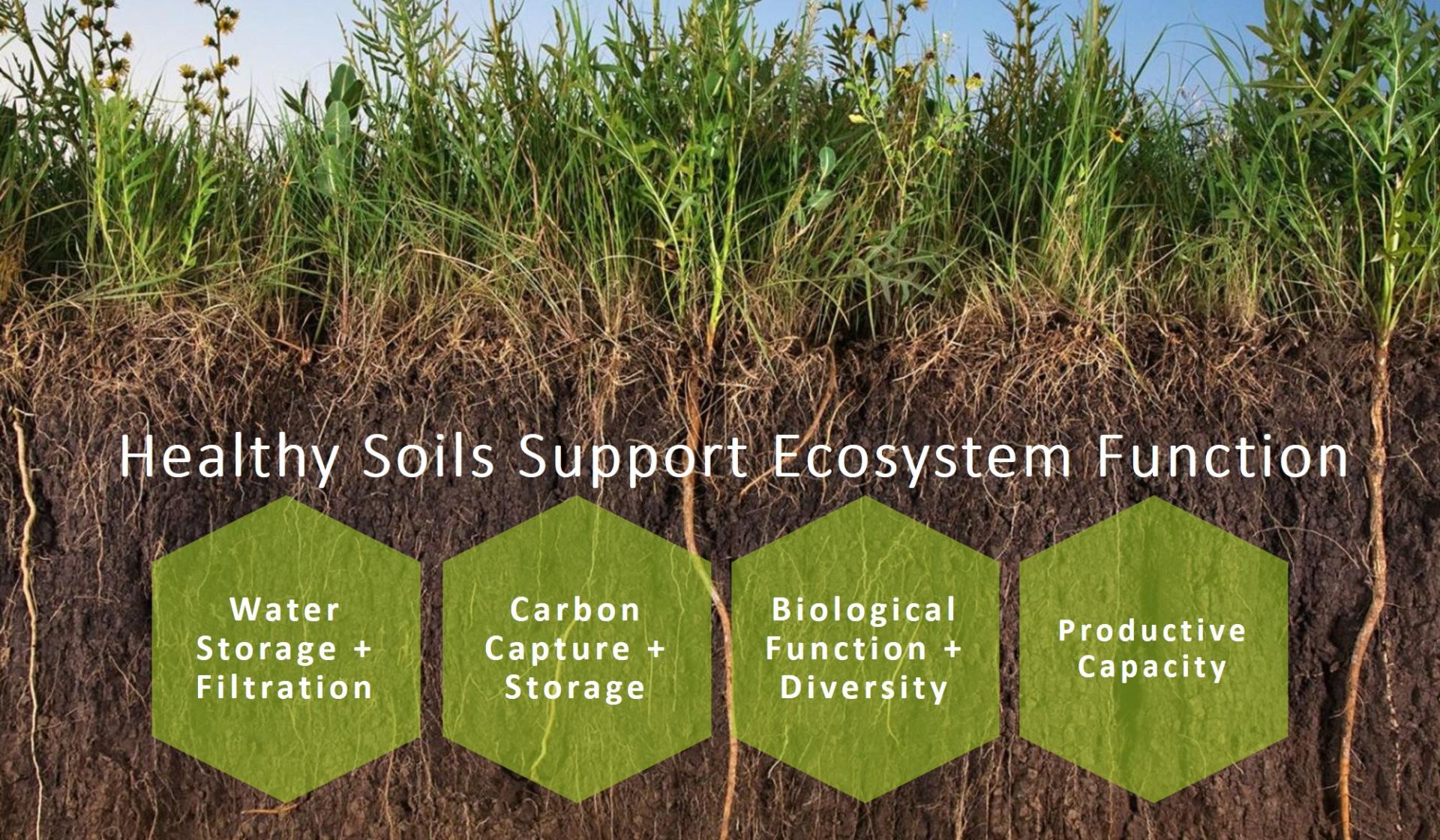 (Photo: Ecological Landscape Alliance)
(Photo: Ecological Landscape Alliance)
Less Heavy-Duty Trucks Blocking the Roads
Decentralized composting not only transforms waste management practices but also addresses the inefficiencies associated with transporting waste to centralized landfills. A significant aspect of this inefficiency lies in the operation of garbage trucks, which are notoriously energy-intensive and contribute substantially to urban air pollution. Not to mention they are obnoxiously loud and smelly.
Garbage trucks, primarily running on diesel, are among the least fuel-efficient vehicles on the road. On average, these trucks achieve a mere 2.8 miles per gallon of diesel, a stark contrast to the average passenger vehicle’s fuel efficiency. Considering that a single garbage truck can consume upwards of 14,000 gallons of diesel per year, the environmental impact becomes clear. This fuel consumption leads to the emission of approximately 148 metric tons of CO2 per truck annually, not to mention other pollutants such as nitrogen oxides and particulate matter, which contribute to urban smog and respiratory issues.
By adopting community-based composting, we can significantly reduce the reliance on these inefficient garbage trucks. Processing organic waste locally minimizes the distance waste needs to travel, thereby cutting down on the emissions and fuel consumption associated with waste collection and transportation. Studies suggest that localized composting efforts could reduce the energy used for waste collection and transportation by up to 60%, showcasing a substantial opportunity for environmental improvement.
Implementing Decentralized Composting: Strategies for Success
Choosing the Right Composting Method
The efficacy of community composting significantly depends on the choice of the right composting method. The market presents a diverse array of composting solutions designed to meet various scales of operation and specific requirements, ensuring entities can identify a system that aligns with their waste management goals.
In-vessel composting technologies, such as the BioSpeed, exemplify advanced solutions suitable for a wide range of settings, including large educational campuses, small municipalities, resorts, hotels, and more. These systems excel by meticulously controlling critical factors of the composting process—heat, agitation, oxygen levels, and microbial activity—thereby optimizing waste decomposition. Their compact design allows for the processing of substantial waste volumes within limited spaces, making them ideal for densely populated urban environments where traditional composting options may be impractical.
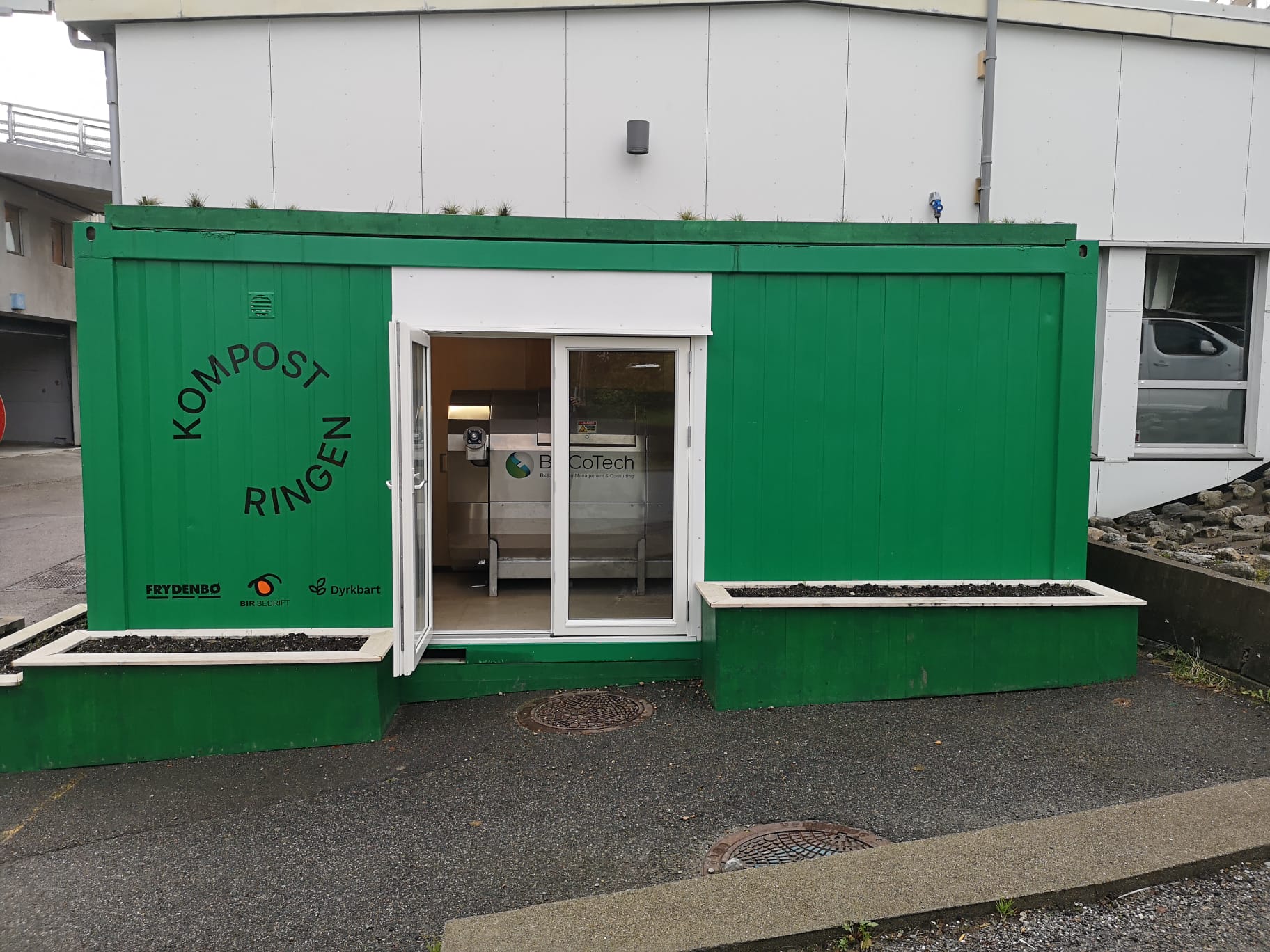 (Model: Pre-fabricated Shipping Container & BioSpeed M2 Location: Bergen, Norway)
(Model: Pre-fabricated Shipping Container & BioSpeed M2 Location: Bergen, Norway)
Above is an illustrative application of this technology’s deployment in apartment complexes, where residents can conveniently segregate organic waste in their kitchens. They can then use an access fob to deposit their waste into the BioSpeed system, where it is weighed, and residents are charged based on the weight of their organics. This model not only facilitates efficient waste processing but also encourages waste reduction through a pay-as-you-throw approach, aligning economic incentives with environmental sustainability.
Engaging Stakeholders
The transition to decentralized composting requires the buy-in of all stakeholders. Through education and engagement, entities can cultivate a culture of sustainability, encouraging participation and support for composting initiatives.
Inspiration from Success Stories
Across sectors, the adoption of decentralized composting is proving to be a wise investment. From small businesses reaping the financial benefits of reduced waste management costs to educational institutions using composting as a tool for hands-on learning about sustainability, the success stories are both inspiring and indicative of the potential that lies in this approach.
Conclusion: A Call to Action for a Resilient Future
Decentralized composting stands at the intersection of economic viability and environmental responsibility. It offers a pragmatic solution to the pressing issue of waste management, with the added benefits of financial savings, revenue generation, and enhanced resilience against future challenges. As more entities embrace this innovative approach, the vision of a sustainable, resilient future becomes increasingly attainable.
The journey toward sustainability is paved with challenges, but decentralized composting offers a clear path forward. By transforming organic waste into a resource, entities can not only safeguard the environment but also strengthen their economic footing. The time to act is now: embrace decentralized composting and unlock the potential for a healthier planet and a more prosperous future.

